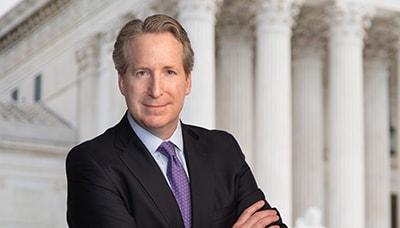Highlights
HHS-OIG issued a warning about suspect payments from Medicare Advantage Organizations to healthcare professionals for patient referrals
The agency also warned against payments from healthcare professionals to agents and brokers for enrollee recommendations
Actions could improperly steer Medicare enrollees to plans and violate the Anti-Kickback Statute, other laws
The Office of Inspector General of the U.S. Department of Health and Human Services (HHS-OIG) recently issued a special fraud alert focusing on questionable marketing arrangements related to Medicare Advantage (MA) plans. According to HHS-OIG, these arrangements often involve improper payments and referrals that can mislead Medicare enrollees into selecting plans or providers that may not meet their needs.
HHS-OIG identifies two primary types of suspect remuneration they believe “can result in abusive arrangements that could lead to improper steering, anticompetitive conduct, and other harms to enrollees and to the Medicare program”:
- Payments from a Medicare Advantage Organization (MAO) to a healthcare professional (HCP) or its staff related to marketing and enrollment in MA plans
- Payments from HCPs to agents, brokers, and others in exchange for referring Medicare enrollees to specific HCPs
Payments from MAOs to HCPs can lead to enrollees being placed in plans that do not meet their needs, sometimes without their consent. This can result in unfair practices, where certain enrollees are targeted based on profitability rather than medical necessity and which may involve discrimination against protected classes of enrollees.
Similarly, payments from HCPs to agents and brokers can influence enrollee decisions, often without their awareness of the financial incentives involved. This can lead to the increased risk of enrollees receiving suboptimal care or incurring higher costs.
Legal Framework
These arrangements raise concerns about compliance with healthcare fraud and abuse laws, including the federal Anti-Kickback Statute (AKS). The AKS prohibits offering or receiving remuneration to induce referrals for services reimbursable under federal healthcare programs. Violations can result in criminal and civil penalties, including exclusion from federal healthcare programs.
Other implicated laws include the Civil Monetary Penalties Law, the criminal healthcare fraud statute, and the False Claims Act, all of which aim to protect enrollees from improper referrals and ensure fair competition.
In its fraud alert, HHS-OIG highlights several characteristics of suspect marketing activities. These include, but are not limited to:
- Remuneration to HCPs or their staff (e.g., bonuses, gift cards) for referring patients to a particular MAO or MA plan
- Remuneration to HCPs disguised as legitimate service payments but is intended to pay for the HCP’s referral of individuals to a particular MA plan
- Payments for patient information used for marketing purposes
- Remuneration contingent on enrollee demographics or referral numbers
Key Takeaways
Healthcare providers should consider carefully reviewing their marketing arrangements to ensure compliance with federal laws. HHS-OIG’s alert serves as a critical reminder of the importance of maintaining ethical and legal standards in MA marketing practices. Providers should consider implementing robust compliance programs and conducting regular audits to detect and prevent suspect activities, safeguarding both their practice and their patients.
For more information, please contact the Barnes & Thornburg attorney with whom you work or John Kelly at 202-831-6731 or jkelly@btlaw.com, Jacquelyn Papish at 202-831-6732 or jackie.papish@btlaw.com or Alexandra Della Volpe at 202-371-6356 or alexandra.dellavolpe@btlaw.com.
© 2024 Barnes & Thornburg LLP. All Rights Reserved. This page, and all information on it, is proprietary and the property of Barnes & Thornburg LLP. It may not be reproduced, in any form, without the express written consent of Barnes & Thornburg LLP.
This Barnes & Thornburg LLP publication should not be construed as legal advice or legal opinion on any specific facts or circumstances. The contents are intended for general informational purposes only, and you are urged to consult your own lawyer on any specific legal questions you may have concerning your situation.














